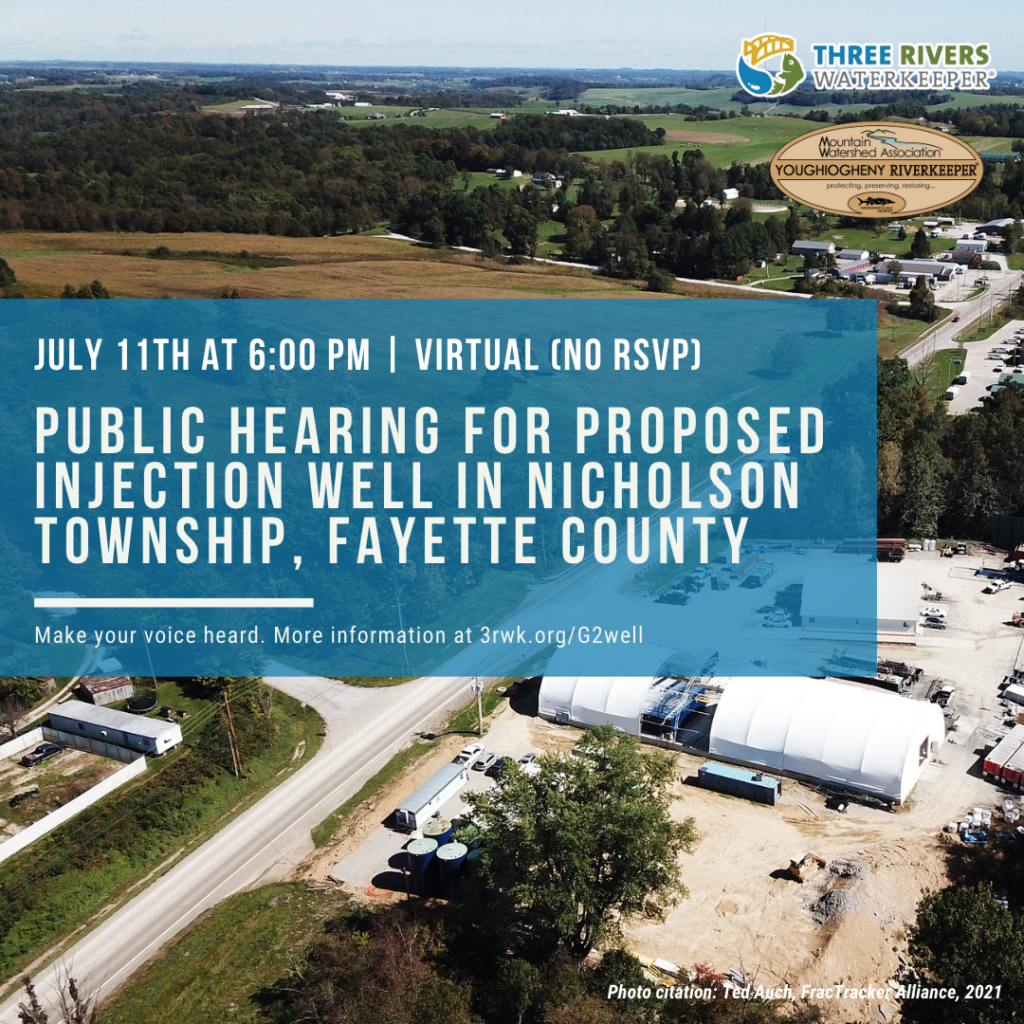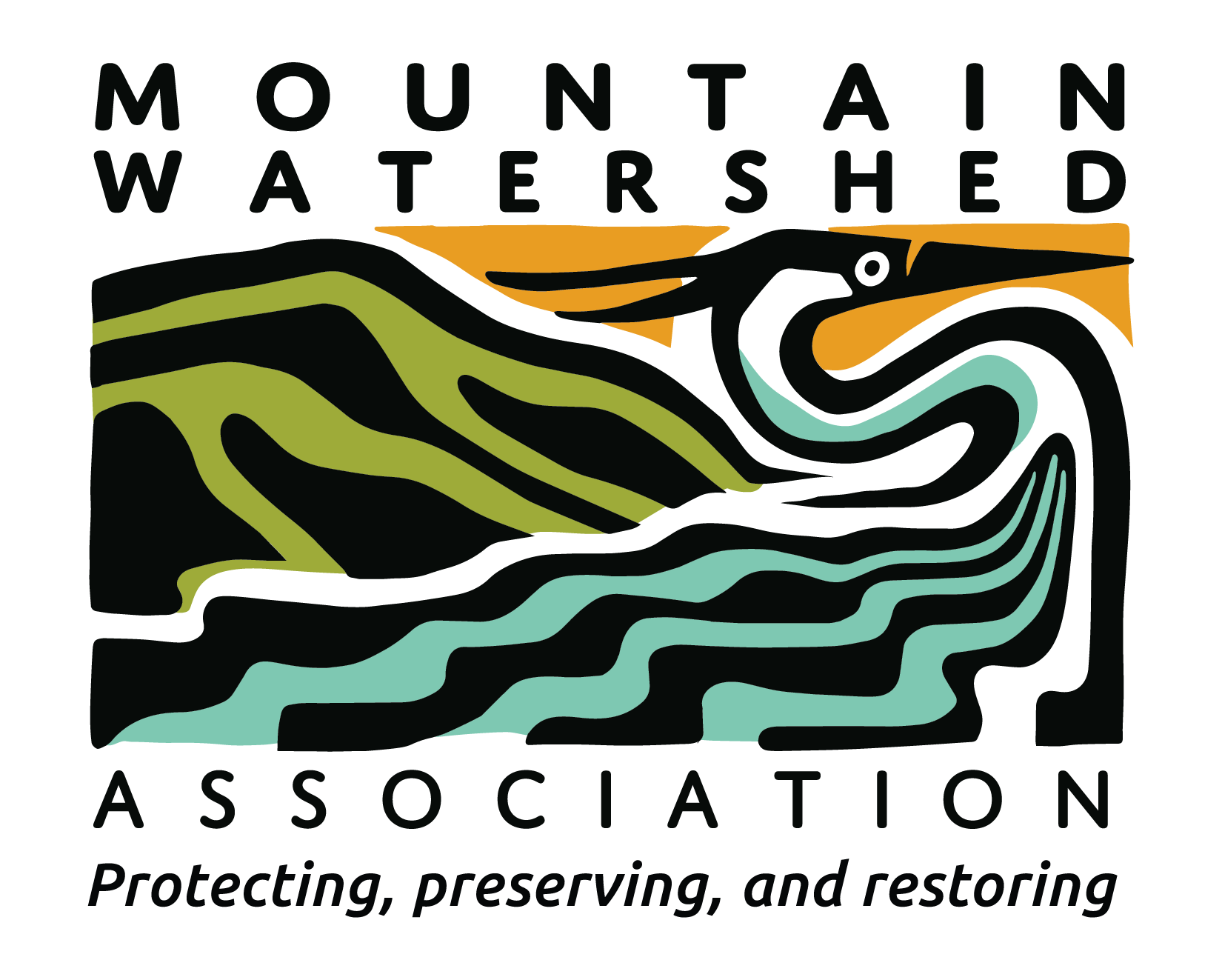There is an opportunity to comment on Fayette County’s first proposed injection well for fracking waste coming up soon on July 11, 2023, at 6pm.
This injection well would repurpose a conventional gas well to dispose of the toxic wastewater produced by fracking. Essentially, the fluid, which often contains heavy metals, PFAS chemicals, and radioactive materials, is pumped back into a hole left by the drilling that produced it. A liner is employed in an attempt to protect the wastewater from migrating and only extends until it reaches a depth at which it is not expected to interact with groundwater.
There are several concerns with this proposal in Fayette County. Obviously, there is a risk that contaminated fluids, forcefully injected over 1,000 feet underground, may migrate into public waterways or residential areas. This proposed injection well is also located roughly ¼ of a mile from underground mining operations. Such proximity can provide huge connection points for any leaks from the well to migrate through the underground aquifer.
The site also sits adjacent to a tributary to the Monongahela River, a waterway called Jacob’s Creek. With a tributary so close, any unexpected breaches are more likely to contaminate the major public waterway. Worse, it is directly beside several Fayette County homes, situated as close as your neighbor across the street. The homes are located in a DEP Environmental Justice Area, a census tract where 20 percent or more individuals live at or below the federal poverty line and are at higher risk from industrial damage. Please view the site coordinates to understand the proximity of this proposal to Fayette County homes.
There are only a handful of injection wells for oil and gas waste in Pennsylvania, despite our state being one of the primary fracking hotbeds in the USA. The dangers of the wastewater to human health, coupled with the potential fallouts of this storage method, make this practice ill-advised in land seriously undermined or close to waterways. Placing this facility close to homes in an environmental justice area of Fayette County – and with conditions including nearby mine voids and tributaries, is of high concern.
An additional concern with injection wells generally is that they have been found to induce earthquakes. As wastewater fluid is pumped underground, it has the potential to lubricate fault lines and increase pore pressure, which leads to fault slips and earthquakes. Injection well earthquakes tend to be larger and felt more often than those caused by fracking, and may take place long after the injection well has ceased operations.

The U.S. Environmental Protection Agency, Mid-Atlantic Region (EPA), proposed the issuance of a draft permit to G2 STEM of Fairfax, VA. This permit authorizes the construction and operation of a UIC Class IID disposal injection well, Orville Higinbotham #1 well, located in Nicholson Township, Fayette County, Pennsylvania. EPA has tentatively scheduled a virtual public hearing on July 11, 2023. An in-person hearing will not take place. The call-in and log-in information for the virtual meeting is listed here.
We encourage you to log into this hearing to share your concerns. Even if only to listen to others’ comments, your presence is helpful to brighten the spotlight on this proposal. This is not the last hurdle the proposal needs to clear – even if it receives a permit from the EPA, it will also need an Erosion and Sedimentation permit from the DEP, which can also be an opportunity for public engagement.
Public Hearing Tuesday, July 11 at 6:00pm
EPA has tentatively scheduled a virtual public hearing using Microsoft Teams on July 11, 2023. An in-person hearing will not take place. The call-in and log-in information for the virtual meeting is:
Call-in Number: (484) 352-3221, 6:00 PM – 8:00 PM EST
Conference ID: 138 108 152#
MS Teams Link: https://msteams.link/8JOG
There is no need to register in advance for the virtual hearing. Attendees may utilize MS Teams by calling via telephone or entering the URL into a web browser.
If you have any questions please contact James Cato at james@mtwatershed.com or Jess Friss at ops@threeriverswaterkeeper.org.

